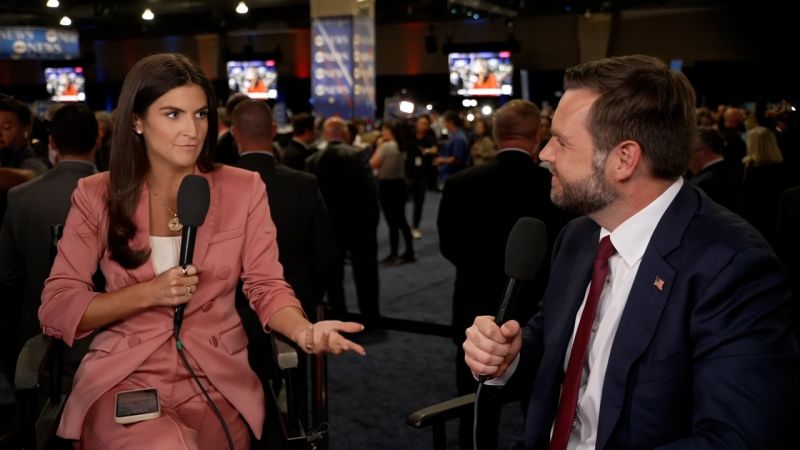In an interview with CNN’s Kaitlan Collins, Republican vice presidential candidate JD Vance discussed the controversial issue of encouraging his followers to continue posting “cat memes” despite admitting that the false claim about Haitian immigrants abducting pets in Springfield, Ohio may not be true. Vance’s comments sparked backlash and raised questions about the use of misinformation in political messaging.
Vance defended his decision to promote the false claim, stating that it was meant to draw attention to the issue of illegal immigration and its impact on everyday Americans. He insisted that the intent behind the posts was not to spread misinformation but to highlight a broader problem that he believes needs to be addressed. However, critics argue that perpetuating false narratives only serves to further divide communities and fuel anti-immigrant sentiments.
The controversy surrounding Vance’s campaign highlights the power of social media in shaping public opinion and influencing political discourse. The spread of misinformation through platforms like Twitter and Facebook can have real-world consequences, as seen in the case of the false claim about Haitian immigrants. Politicians and public figures have a responsibility to verify information before sharing it with their followers, as misinformation can have harmful effects on individuals and communities.
In the interview, Vance acknowledged that the claim about Haitian immigrants abducting pets was not based on factual evidence and expressed regret for spreading it. He emphasized the need for more responsible use of social media and a commitment to truth and accuracy in political messaging. However, some have questioned the sincerity of Vance’s apology and whether it was motivated by genuine remorse or political expediency.
The incident serves as a reminder of the importance of critical thinking and fact-checking in the digital age. With the proliferation of fake news and misinformation online, it is more crucial than ever for individuals to verify the accuracy of information before sharing it with others. The consequences of spreading false narratives can be far-reaching and damaging, leading to misinformation campaigns that misinform the public and sow division within society.
Moving forward, the controversy surrounding JD Vance’s false claim about Haitian immigrants abducting pets underscores the need for greater accountability and transparency in political communication. As public figures, politicians have a responsibility to be truthful and ethical in their messaging, and to fact-check information before sharing it with their followers. By promoting a culture of honesty and accuracy in political discourse, we can work towards building a more informed and cohesive society.


